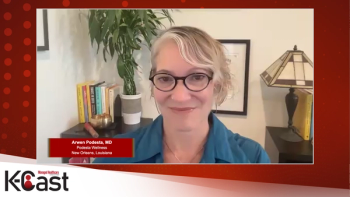
Rural America Not Meeting Residents’ Mental Health Needs
Ball State University study: A severe shortage of mental health professionals in rural areas, as well as opioid and drug problems, is a major concern.
The rural U.S. has a severe shortage of qualified mental health professionals because agencies and governmental units are unable to pay competitive wages commonly offered in larger communities, according to a new report from Ball State University presented at the
“
“Studies on health workforce in rural America are all based on government statistics and highlight the numbers and gaps,” says the study’s lead author, Cathy D. Whaley, director of the Northeast Indiana Area Health Education Center, which is based at Ball State. “Not much is known about what practitioners in rural America think. We wanted to explore the perceptions and practices of mental health practitioners in rural America and explore what they feel about serving at such avenues. We also wanted to ascertain what types of clinical training opportunities health professions students should encounter in their programs prior to practicing in rural communities.”
Most study respondents reported that it is difficult to recruit and retain qualified professionals, they cannot adequately meet the needs of their clients and their area of practice, the mental health problems in their practice area are not well assessed and researched, and local health departments are not adequately involved in providing mental healthcare services in their practice area.
“The nature and extent of mental illnesses in rural America is not well known or researched, but what we know for sure is that there is a shortage of mental health professionals in rural America,” says Whaley.
“As we deal with mental health professional shortage areas across America, we have to look to other ways to improve mental and behavioral health care in our rural communities,” she says. “Integrating behavioral health with primary care is one of the best and most effective ways to make this happen”
The study also found:
- Sixty-three percent of respondents believe that government should play a major role in recruitment and retention of mental healthcare professionals.
- More than a third of respondents reported that the cost of care is high and access is low for mental healthcare in their rural county compared to state average for cost and access.
- The median number of drug-related deaths reported by location of practice was 20.
- Professionals reported that to get specialty care or a qualified psychiatrist, people in their practice area have to travel more than 25 miles on average.
- An average rural mental health professional sees nine clients per day and Medicaid remains the primary source of payment for most patients
- Ninety-five percent of respondents reported that local health departments are not adequately involved in providing mental healthcare services.
- More than one-third of the respondents identified opioid and drug problems as the top concern in their communities.
“Healthcare facilities have to invest significantly in recruitment and retention of quality professionals. Continuing education and professional development for rural mental health professionals needs to be a priority,” says Whaley.
Area Health Education Centers (AHECs) can play a key role in offering continuing education to rural health care professionals, especially those in primary care in ways to screen, treat, and refer patients for mental and behavioral health disorders, according to Whaley.
“The Northeast Indiana AHEC staff will be able to offer Mental Health First Aid training to clinicians to expand mental health outreach in rural areas,” she says.
Newsletter
Get the latest industry news, event updates, and more from Managed healthcare Executive.



















